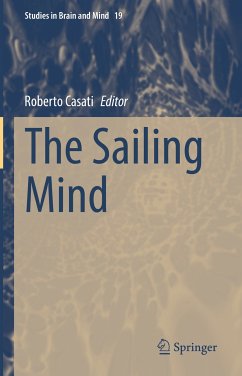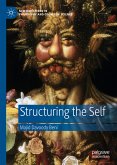This book scrutinizes the practice of sailing and its relation to philosophy of mind. Sailing brings about a peculiar human-artifact interaction which can lead to unexplored research paths. The idea behind this collection is that this interaction is better scrutinized by sailor scientists/philosophers to open up new possible pathways in research. Fascinating theoretical breakthroughs have been provided by observing sailing practices with the most well-known being Hutchins' introduction in cognitive science of the concept of "distributed cognition." However, in times past, sailing has both fueled philosophical metaphors, from Theseus' ship to Plato's image of the intellect as the boatperson of the soul, and inspired philosophers' views (as happened to Herder during a stormy sea trip).
The ecology of sailing is highly constrained: sailboats move at the surface between a compressible fluid and an uncompressible fluid. Wind originates in certain specific circumstances. Only certain sequences of actions are possible to take advantage of this ecology. The ontology of sailing is both of the boat and of the ocean/wind system. It highlights the fact that sailboats have been for centuries arguably the most complex technological artifacts in each culture that developed them, precisely because the environment they are engaging is so peculiar and demanding - almost the precise dual of Sapiens' adaptive environment.
This volume will appeal to philosophers of mind, cognitive psychologists, and marine professionals.
Dieser Download kann aus rechtlichen Gründen nur mit Rechnungsadresse in A, B, BG, CY, CZ, D, DK, EW, E, FIN, F, GR, HR, H, IRL, I, LT, L, LR, M, NL, PL, P, R, S, SLO, SK ausgeliefert werden.
Es gelten unsere Allgemeinen Geschäftsbedingungen: www.buecher.de/agb
Impressum
www.buecher.de ist ein Internetauftritt der buecher.de internetstores GmbH
Geschäftsführung: Monica Sawhney | Roland Kölbl | Günter Hilger
Sitz der Gesellschaft: Batheyer Straße 115 - 117, 58099 Hagen
Postanschrift: Bürgermeister-Wegele-Str. 12, 86167 Augsburg
Amtsgericht Hagen HRB 13257
Steuernummer: 321/5800/1497
USt-IdNr: DE450055826
Bitte wählen Sie Ihr Anliegen aus.
Rechnungen
Retourenschein anfordern
Bestellstatus
Storno









